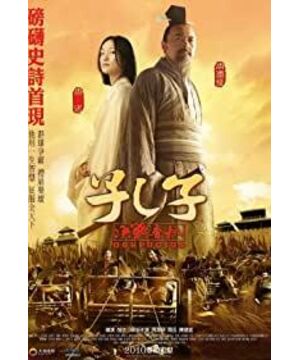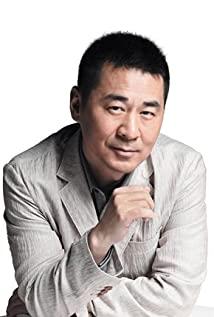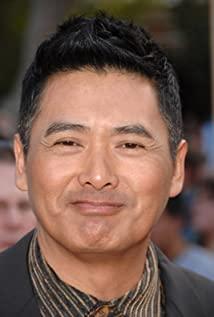■Reader: Europa
■Title: "Confucius" (Remastered Version)
■Director: Fei Mu
■Actors: Tang Huaiqiu, Zhang Yi
■Release Date: April 1, 2009 (Hong Kong)
■Recommendation Index: ★★★★★☆
■One sentence comment: A film made in response to the current situation, Fei Mu tried to show the mortal side of Confucius.
■Title: "Confucius"
■Director: Hu Mei
■Actor: Chow Yun-Fat
■Release date: January 22, 2010
■Recommendation index: ★★☆☆☆☆
■One sentence comment: Hu Mei's new work, who is used to shooting imperial historical dramas, it Still making the sacred image of Confucius.
A gentleman starts with caution, if the difference is even an inch, it is a thousand miles wrong. For the same Confucius, there are scenes in the movie, such as Nanzi, Dianqin, and Zilu's death. When they are placed in the movie, they will produce completely different effects. All this is just because the concepts and ideas behind the two films are very different, and the creative mentality is different. To put it simply, Confucius in "Confucius" is a teacher who is good at teaching his disciples, hoping to change the social atmosphere and restore people's hearts. The Confucius in "Confucius" is a politician who is practical and not to be reused.
Friends who watched "Confucius" together thought that Fei Mu used the Spring and Autumn brushwork to speak in a small way. The film intercepts several fragments of Confucius' life, which has no direct time connection, but uses subtitles and maps to string together the whole story. Confucius was worried about the state of Lu and the common people in the world, and was forced to take the bumpy road of traveling around the world. The exodus in this chaotic world took up most of the time, and it was even more meaningful in the isolated island period when the Japanese invaded.
"Confucius" is emotional and rigorous. Fei Mu meticulously selected the materials, and used the stage setting to create a simple and simple style, one person, one room, one table and one window, which completely echoed Confucius' loneliness. Trapped in Chen Cai, the disciples were exhausted and fell asleep on the spot. Confucius stood alone, and then he felt emotional. Outside the hut, the shadows of the trees were sparse, the stars were dotted, and the composition was very particular. The film is quite rich in skills, and the depth of field processing, editing techniques, and the combination of sound and picture are all worthy of praise.
The film begins with Confucius giving lectures, educating his disciples, self-cultivation, balancing the family, governing the country and the world, so that the audience can first have a clear and complete understanding of Confucius' ideas, and this kind of teaching by words and deeds also uses archery, qin playing, and utensils. in the paragraph. Confucius' recitation is rhythmic, and it sounds a little slow today, which is in line with the rhythm of the film. "Confucius" is clearly defined, Confucius was a politically frustrated person, but he tried his best to teach his disciples, focusing on his image as a teacher, and learning to be high and upright. The film has worked hard on the three disciples of Zilu, Zigong and Yanhui, like Zilu's martial arts and Zhengguan, Yanhui's benevolence under his poverty, and each has a separate paragraph to show.
In contrast, the disciples in "Confucius" almost unconditionally follow and worship Confucius, and there are even more interspersed and unimportant supporting roles such as Qi Sigong who only report news, which is really biased. Zi Lu in "Confucius" did not follow Confucius blindly. He was still dissatisfied when his teacher played the qin and played the qin. After hearing the song, he woke up like a dream and started dancing. In order to exaggerate the death of Zi Lu, the film does not forget to explain the beginning and end of the civil strife in Wei. "Confucius" truly expresses the communication between the teacher and the students, which is like the relationship between the director and the audience. Fei Mu wanted to use the deeds of Confucius to use the past to satirize the present and tell the audience at that time that he was definitely not trying to introduce a sage through the ages. It's just because of the audience's comprehension ability. The film is shot too well, but it seems to be a preaching, which makes the audience have obstacles to understanding.
As for Hu Mei's "Confucius", the whole film is spread out. There is no drama at all, and the camera skills are difficult to serve the entire film. The film is also biased. It spends a lot of energy on the political infighting in the state of Lu, and spends a lot of time writing about the dictatorship of the Three Huans and how to embarrass Confucius. Therefore, the chaotic ministers and thieves naturally stood on the opposite side of Confucius. Since the film is going to be about political battles, it shouldn't leave out the key Yanghuo and Shaozhengmao, and blindly try to shape Confucius' godlike image. The Three Capitals incident took a lot of fire and battles, and I don't know how to explain it. When it came time to leave, Confucius seemed to be somewhat self-indulgent, and he didn't know where he was going. "Confucius" also pretended to portray the reconciliation between Confucius and his adversary. Ji Sunsi looked forward to the return of Confucius. Using this kind of awakening method to create a high-level image of Confucius is too much to take for granted.
On Wei Guo's side, the movie was taken in one stroke. Nanzi appeared inexplicably, and was killed by an arrow in a confused way. In the subsequent death of Zi Lu, the re-enactment of the scene is used to express the righteousness of Zi Lu, but it lacks the cause and effect, and most audiences cannot understand why he died. From the inside to the outside, the film emphasizes more on kneeling and worship, which brings out the side of Confucius advocating the rituals of Zhou, and follows the formal style. Confucius was able to do something in the state of Lu, but why he was excluded, and he was reduced to wandering like a bereaved dog, and even why the idea was not accepted by the rulers of the princes, the film has no desire to talk about it. It is worth mentioning that Yan Hui's death, "Confucius" adopted the most taboo hard sensational, in order to save the scroll fell into the glacier. Not to mention subverting historical facts, it would be too worthless to die.
Finally, let me say that there are high platforms in both films. The high platform in "Confucius" is only to highlight the dominant position of Confucius, just like today's podium, to demonstrate the loftiness of words and deeds and spirituality. The high platform in "Confucius" is very abrupt. It appeared on the Qilu Canyon Alliance. 【Beijing Youth Daily】
View more about Confucius reviews











